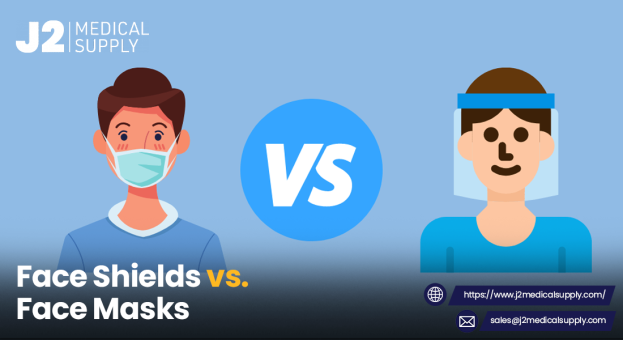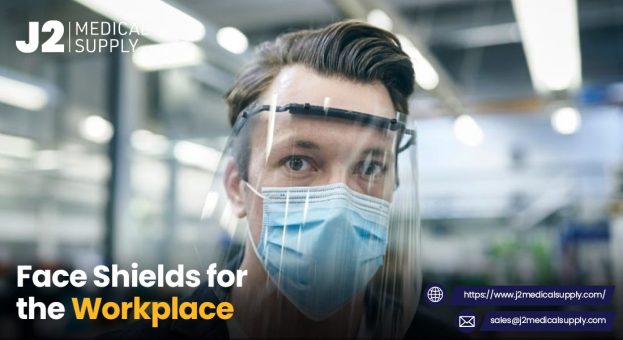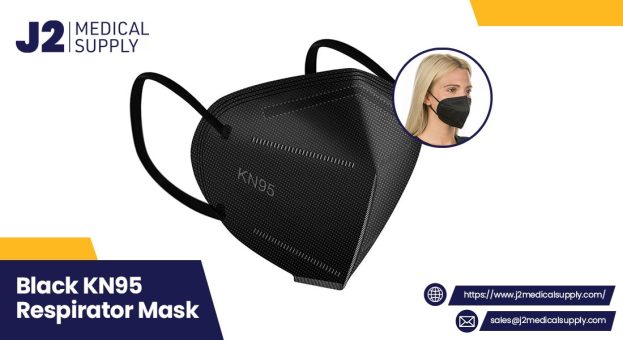In the age of personal protection equipment (PPE), two common options for safeguarding yourself and others against infectious diseases have taken the spotlight: face shields and face masks. As we navigate a world filled with health concerns, it’s essential to understand the merits and drawbacks of each choice. In this comprehensive guide, we’ll explore the pros and cons of both face shields and face masks, shedding light on their effectiveness and when to use them.
The Pros of Face Shields
Face shields are transparent, curved sheets of plastic or other materials designed to cover your entire face. Here’s why they have gained popularity:
Increased Coverage
Face shields provide comprehensive protection by covering your face from forehead to chin. Unlike face masks, which mainly shield your mouth and nose, face shields offer a barrier against respiratory droplets that might enter through your eyes. This makes them an excellent choice for individuals seeking full facial coverage.
Reusable and Easy to Clean
One significant advantage of face shields is their reusability. They can be easily cleaned and disinfected, making them a cost-effective option in the long run. Simply wipe them down with a disinfectant, and they’re ready for use again.
Ideal for Individuals with Breathing Difficulties
For those with respiratory conditions or difficulty breathing through a mask, face shields provide a comfortable alternative. They allow for unrestricted airflow while still offering protection.
Are There Any Cons to Face Shields?
While face shields offer substantial advantages, they come with their own set of limitations:
Limited Particle Filtration
Face shields primarily act as physical barriers to large respiratory droplets. However, they are less effective at filtering small particles, such as airborne viruses. To maximize protection, consider combining a face shield with a cloth face mask.
Fogging Issues
One common complaint with face shields is fogging, which can obstruct vision. Anti-fog coatings can help mitigate this problem, but it remains a minor inconvenience for some users.
The Pros of Cloth Face Masks
Cloth face masks have been a staple in the fight against COVID-19. Here’s why they’re a popular choice:
- Effective Particle Filtration
Cloth face masks can effectively filter out respiratory droplets, including those carrying viruses. They offer good protection against both inhaling and exhaling potentially infectious particles.
- Breathability and Comfort
Compared to face shields, cloth masks are lightweight and breathable. They fit snugly over the nose and mouth, providing comfort during extended wear.
- Stylish Options
Cloth face masks come in a wide range of colors and designs, allowing individuals to express their personality while staying protected.
The Drawbacks of Cloth Face Masks
Cloth face masks, like face shields, have their limitations:
- Limited Eye Protection
One key drawback of cloth face masks is that they don’t shield the eyes. In situations where eye protection is crucial, such as close contact with infected individuals, additional safety measures are needed.
- Frequent Washing Required
Cloth masks need regular washing to remain effective. Failure to do so can lead to a buildup of contaminants, reducing their protective capabilities.
Face Shields for Medical Workers
Medical professionals often opt for face shields as they provide an extra layer of protection during patient interactions. In high-risk environments, face shields help safeguard the eyes and face from potential exposure to pathogens.
When to Choose Face Shields
Situations Demanding Enhanced Eye Protection
Face shields are particularly valuable in situations where protecting the eyes is critical. This includes close contact with infected individuals or when working in environments where splashes and sprays are common.
Close Contact with High-Risk Individuals
If you frequently interact with vulnerable individuals, like the elderly or immunocompromised individuals, using a face shield in conjunction with a mask is advisable. It adds an extra layer of protection.
When to Opt for Face Masks
Everyday Use in Public
For everyday activities such as grocery shopping or outdoor exercise, cloth face masks provide sufficient protection while ensuring breathability and comfort.
Compliance with Mask Mandates
In areas with mask mandates, cloth face masks are a convenient choice for staying compliant with regulations while minimizing waste compared to disposable masks.
Choosing between face shields and cloth face masks depends on your specific needs and circumstances. Face shields offer superior eye protection and are ideal for those with breathing difficulties, while cloth face masks excel at particle filtration and breathability. For the best protection, consider combining both methods when appropriate. At J2 Medical, we are dedicated to providing high-quality personal protection equipment, including face shields and cloth face masks. Our products are designed to meet the diverse needs of individuals and medical professionals alike, ensuring your safety in any situation.




